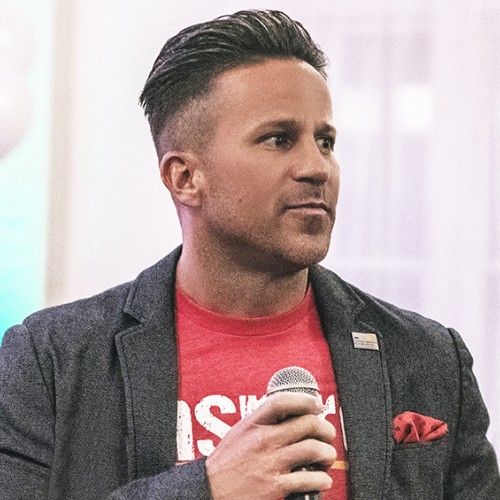At some point in your career, you will have to deal with a problematic colleague. Someone who is negatively impacting your day, having a bad attitude, or a detriment to your company's culture.
How do you deal with this? How do you find enough patience to continue working with someone? What do you do if this person is not your superior or subordinate but a peer working at the same level as you?
Being able to maintain a valuable workplace culture is challenging when having to deal with a disagreeable teammate. Nevertheless, it will happen to just about everyone sometime in their professional career. Being able to shift away from this disruptiveness, promote a positive attitude and encourage your company culture identifies outstanding leaders.
A pessimistic co-worker can be the cause of several problems affecting a wide variety of professionals. A defeatist attitude can impact productivity, teamwork, communication, and morale within a company in addition to personally affecting team members' mental health and work-life balance. If you notice a colleague with a consistently unfavorable attitude, it is important to address it to minimize the disruption and reduce the impact of their demeanor. Focus on open communication and balance to help foster a healthy and comfortable work environment for everyone.
Dealing with a supervisor or subordinate with an unpleasant attitude is strenuous, but dealing with a negative peer presents a whole new challenge. Superiority and titles no longer impact the relationship, one of you does not directly report to the other one, but collaboration is crucial. Understanding a discouraging or disruptive coworker is exhausting but here are some tips that may help you better conduct a beneficial relationship with a fellow employee that has a poor attitude:
- Lead by example
Although it may be challenging, it is crucial to keep an optimistic attitude when dealing with a difficult coworker. Even if this colleague is not your superior or subordinate, they may still learn from the work environment you are fostering compared to theirs. Being able to successfully lead people and create a warm and welcoming culture demonstrates your leadership and attitude. Being able to lead by example and exhibit a positive attitude changes the dynamic, especially when you need someone's cooperation to finish a project or meet a deadline, ensuring you are maintaining a positive attitude is important.
2. Practice empathy
We all can get caught up in emotion. Being empathetic and working to understand where a peer's attitude stems from. Nothing can create an adverse environment like an uncooperative and adverse leader. When working in a professional environment, consider perspective vs. intent, and take a closer look at what the situation may be. You may understand a workmate to be abrupt or hasty but, maybe they have another meeting to attend. Examining a situation from the other's point of view and being able to further break down your perception of someone's attitude and actions compared to the intent behind it will help you understand how to best move forward in dealing with a teammate you perceive as hostile.
3. Offer constructive feedback
While it may be awkward, getting feedback is what allows us to professionally grow. Professionals may have an unpleasant attitude but do not realize how they present it, how they communicate, and how they disrupt the culture and attitude of others in their company. Work on cultivating a culture that embraces mistakes and allows employees to grow through feedback. Being able to effectively communicate constructive feedback is a great skill for all leaders. In preparing to give constructive feedback, be sure to consider timeliness and be specific in your feedback so they know exactly what they are doing that portrays them as uncooperative. It is also important to find a balance between criticism and appreciation for the work they do and ask if they have any feedback for you. Requesting feedback for yourself is crucial because not only does it allow you to grow, it creates a conversation between the two rather than a scolding of the person with a poor attitude. If this seems too overwhelming, consider talking to human resources and seeing if feedback can be worked into a performance review.
4. Focus on self-care
When working with a resistive colleague, be sure to take time to focus on keeping up your positive outlook to foster a productive work environment and, celebrate the small success within that relationship. Working with a troublesome coworker slowly damages your resilience and patience. It is crucial to take the time and recuperate and rebuild so you can put your best foot forward in maintaining a positive attitude and encouraging the company culture you would like to see. Some steps you could take to focus on your self-care could be setting work boundaries to make sure this doesn’t affect your personal life or setting transition times before or after your meetings with this team member to debrief and decompress. Build time into your day to do whatever will help you realign after working with this challenging teammate.
5. Seek mentorship
Dealing with a negative attitude can be emotionally draining. Finding a mentor who has had similar experiences that will be able to provide specific advice and guidance can help you maintain your productive attitude and continue to foster the workplace environment you want to have. To avoid gossip, seek connection with professionals outside of your company in a horizontal mentorship program to learn how others in the same position are dealing with problems similar to your own.
When working with a frustrating peer, it is important to maintain professionalism, gossip is inappropriate in a professional environment. However, being able to vent about these problems is a great way to release some frustration. Consider reaching out to your company's human resources department, you can request an off-the-record meeting, and explain you do not want to have this person notified but just need someone to talk to about the situation.
Remember that moving on from a difficult co-worker takes time and effort, do not expect to see changes overnight, stay focused and committed to maintaining your optimistic attitude and fostering a productive and healthy work environment for those around you, and do not let others' negativity hinder your happiness.




































































